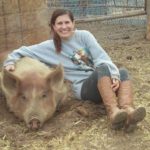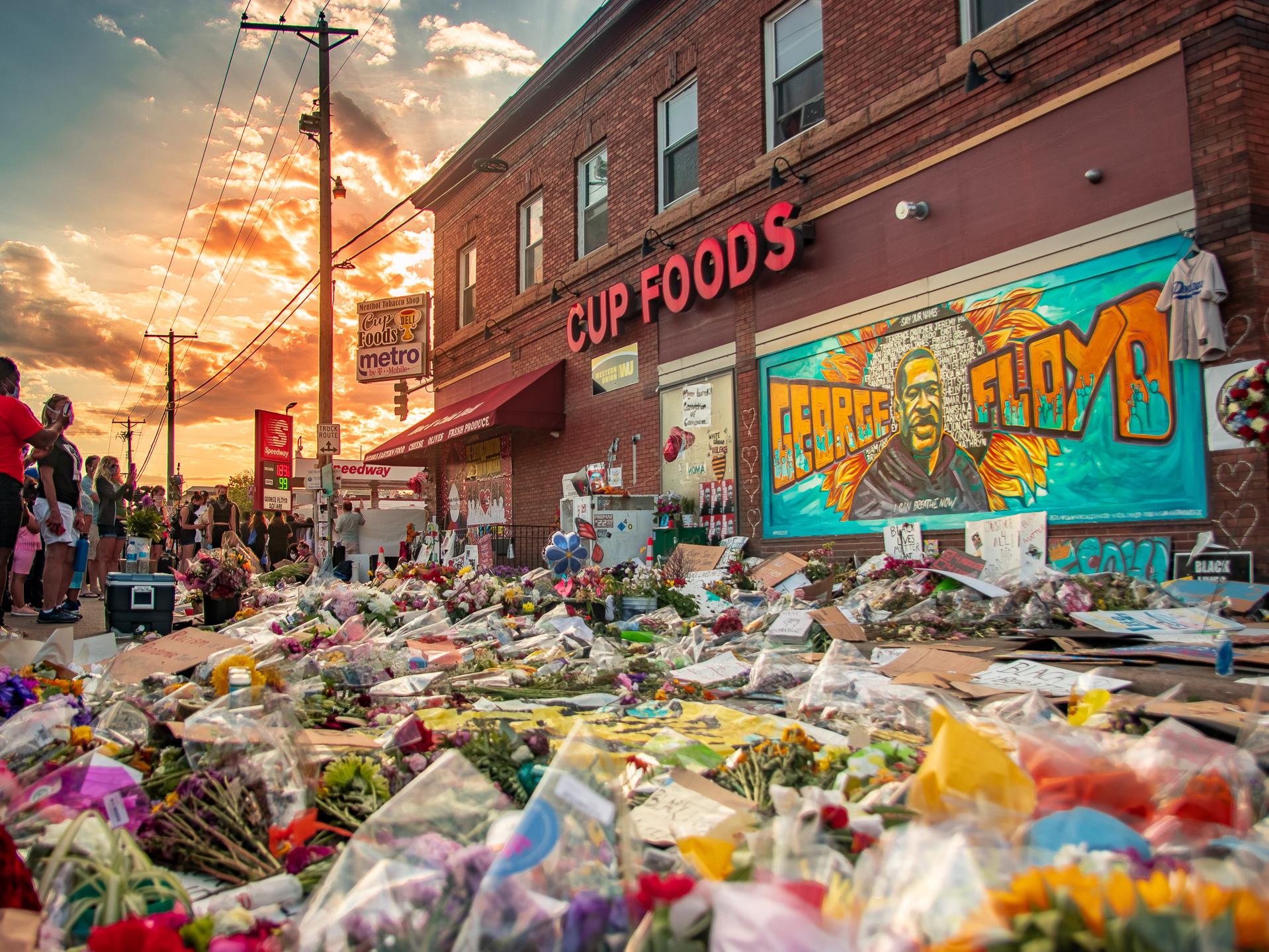George Floyd.
You know his name. And you should.
But do you recognize these names?
Jose Andrade-Garcia. Jeronimo Anguiano. Tin Aye. Eduardo Conchas de la Cruz. Husen Jagir. Juan Manuel Juarez Alonzo. Sha Myan Kaw Bu. Axel Kabeya. Way Ler. Guadalupe Olivera. Tibursio Rivera López. Gonzalo Peralta. Augustine Rodriguez. Saul Sanchez.
These people, like George Floyd, suffered the lethal costs of systemic racism. And while police officers were responsible for the death of George Floyd, we, the general members of the public, are responsible for the deaths of these others. After all, they died so that we can enjoy hamburgers. More specifically: these people lost their lives by working in meatpacking facilities, which are notorious for their dangerous and dirty working conditions. Tragically, they disproportionately exploit racial and ethnic minorities.
The pandemic has only exacerbated the risks for meatpacking workers. At least 370 meatpacking facilities have had confirmed cases of Covid-19, which makes them one of three major coronavirus hotspots (in addition to prisons and nursing homes). At least 35,597 meatpacking workers have tested positive for Covid-19, and at least 148 of them have died. But not all races are affected equally: while most of the managers are white, 70% of the production line workers are Black, Latino, and Asian; as a result, 87% of those infected with the coronavirus are ethnic and racial minorities. This, too, is a civil rights issue.
Meatpacking facilities are commonly referred to as “coronavirus incubators” because production floors are organized in such a way that makes social distancing impossible. Line workers stand shoulder-to-shoulder skinning, pulling, cutting, deboning, packing, and cleaning animal carcasses for hours at a time. Production lines are overcrowded due to their pace: the faster the lines, the greater number of employees needed. And the speed of the work makes it impossible for employees to worry about whether their masks are properly positioned. Despite knowing this, meat plants have neither slowed processing speeds, nor spaced workers six or more feet apart, as was recommended by the CDC. Moreover, the USDA’s Food Safety and Inspection Service granted at least 15 poultry processors waivers to increase poultry processing lines.
Understandably, then, line workers are terrified to report to work, but they continue to risk their lives; the alternative is unemployment. Moreover, a number of meatpacking employers offer workers $500 “responsibility bonuses” for working through the pandemic, incentivizing employees to work while ill. Low-income meatpacking employees, the majority of whom are racial and ethnic minorities, have been standing in coronavirus incubators for hours each day, all so that we can enjoy hamburgers.
While you might think that the answer is just to offer meatpacking employees paid sick leave and better protection from the coronavirus, it isn’t so simple. Meatpacking employees have long been subjected to dangerous working environments, frequently suffering physical injuries, including repetitive-motion injuries, such as rotator cuff injuries, tendonitis and carpal tunnel syndrome, and back and shoulder problems. Workers often die from knife accidents, chemical exposure, machine injuries, and deadly encounters with large animals who thrash about on production lines when stunned incorrectly.
Working in production lines is inherently dangerous. Moreover, because slaughterhouse work is inherently violent, and workers kill hundreds of animals each hour and thousands per week, the workers suffer severe psychological trauma. And because the physical and psychological risks disproportionately impact ethnic and racial minorities, this is a racial injustice. That’s why a recently filed civil rights complaint against Tyson Foods and JBS states that meatpacking facilities are responsible for a pattern of racial discrimination. So, banning higher line speeds, adhering to the CDC’s social distancing recommendations, and giving workers paid sick leave won’t eliminate the injustices meatpacking employees face.As the late philosopher Tom Regan puts it, “you don’t change unjust institutions by tidying them up.”
There’s a very different story to be told when it comes to the production of plant-based meats, which are produced in high-tech facilities that allow for social distancing. For instance, at the Impossible Foods factory, shifts are staggered to limit the number of employees in the plant at one time, workers are provided with masks and personal protective equipment, and surfaces are constantly sanitized.
Given the wide assortment of ethically produced plant-based alternatives, we can go without meat. And if we oppose racial injustice, we should. You can do something about our unjust systems of food production. You can stop supporting an industry that profits from systematically exploiting the vulnerable, that readily devalues the lives of black and brown people. You can stop eating food that’s tainted with racial injustice. Will you?
 Cheryl Abbate is an assistant professor of philosophy at the University of Nevada, Las Vegas and the co-president of the Society for the Study of Animal Ethics. She specializes in ethics (especially animal ethics), social and political philosophy, and epistemology (especially the intersection of epistemology and ethics). Recent publications include: “A Defense of Free-roaming Cats from a Hedonist Account of Feline Well-being” (Acta Analytica), “Veganism, (Almost) Harm-free Animal Flesh, and Nonmaleficence: Navigating Dietary Ethics in an Unjust World” (Routledge Handbook of Animal Ethics), and “Valuing Animals as They Are: Whether they Feel It or Not” (European Journal of Philosophy).
Cheryl Abbate is an assistant professor of philosophy at the University of Nevada, Las Vegas and the co-president of the Society for the Study of Animal Ethics. She specializes in ethics (especially animal ethics), social and political philosophy, and epistemology (especially the intersection of epistemology and ethics). Recent publications include: “A Defense of Free-roaming Cats from a Hedonist Account of Feline Well-being” (Acta Analytica), “Veganism, (Almost) Harm-free Animal Flesh, and Nonmaleficence: Navigating Dietary Ethics in an Unjust World” (Routledge Handbook of Animal Ethics), and “Valuing Animals as They Are: Whether they Feel It or Not” (European Journal of Philosophy).

